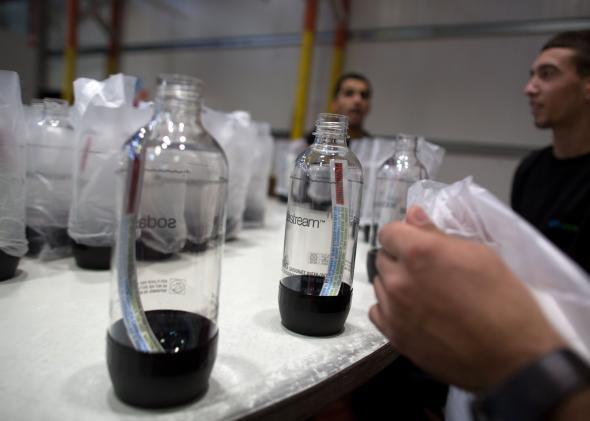SodaStream makes, in my opinion, a fantastic product. But since some of the stuff SodaStream manufactures comes from a factory located in the West Bank the company is perennially mired in controversy. One point SodaStream and its defenders always make about this is that the Palestinians who work at the factory would obviously not be helped if the factory were to close.
Relocating production to inside Israel proper (or to Indonesia or wherever one goes in search of cheap factory labor these days) would only make living conditions in the West Bank worse than they already are. This is totally true. But it’s also utterly besides the point.
Think about South Africa under apartheid. Living conditions for black South Africans were bad. At the same time, black South Africans were still impacted by the larger South African economy. The various sanctions and boycotts to which South Africa was being subjected didn’t microtarget white South Africans. Black South Africans shared the pain too. And so black people in South Africa in 1987 had slightly worse lives than they would have had absent boycotts and sanctions. But the point of the boycotts and sanctions wasn’t to maximize the welfare of black South Africans under conditions of apartheid, it was to end apartheid. And it worked!
So flip to the West Bank. What you have there is a situation where millions of people are governed by Israel’s elected government. And a minority of those people are Jewish citizens of Israel who get to vote for the government of Israel. But a majority of the West Bank’s population are Palestinian Arabs who don’t get to vote for the government of Israel. That is not a context that is promising for the long-term economic welfare of the Palestinian inhabitants of the area. Any time you have a mixed population area where some of the people can vote and the others can’t, you have a recipe for the interests of the nonvoters to be systematically degraded in terms of building permits, access to natural resources, law enforcement, transportation infrastructure, and everything else. It’s absolutely true that if you take the persistence of the situation in which Israel governs the West Bank and most of its residents can’t vote as a given, that it’s good for Palestinians to have Israeli factories opening up in the area and creating jobs.
But why should we take it as a given? It’s a very weird situation. There are a lot of problems and a lot of injustices in the world, but the particular scenario in which a country rules over a couple of million nonmigrant noncitizens while otherwise maintaining the procedures of representative government is an extremely weird one. It used to be common, of course. France and Britain ruled vast colonial empires while holding elections domestically. But in the modern day it’s bizarre, and the point of stigmatizing settlement businesses is to end the situation not to make the best of it.
